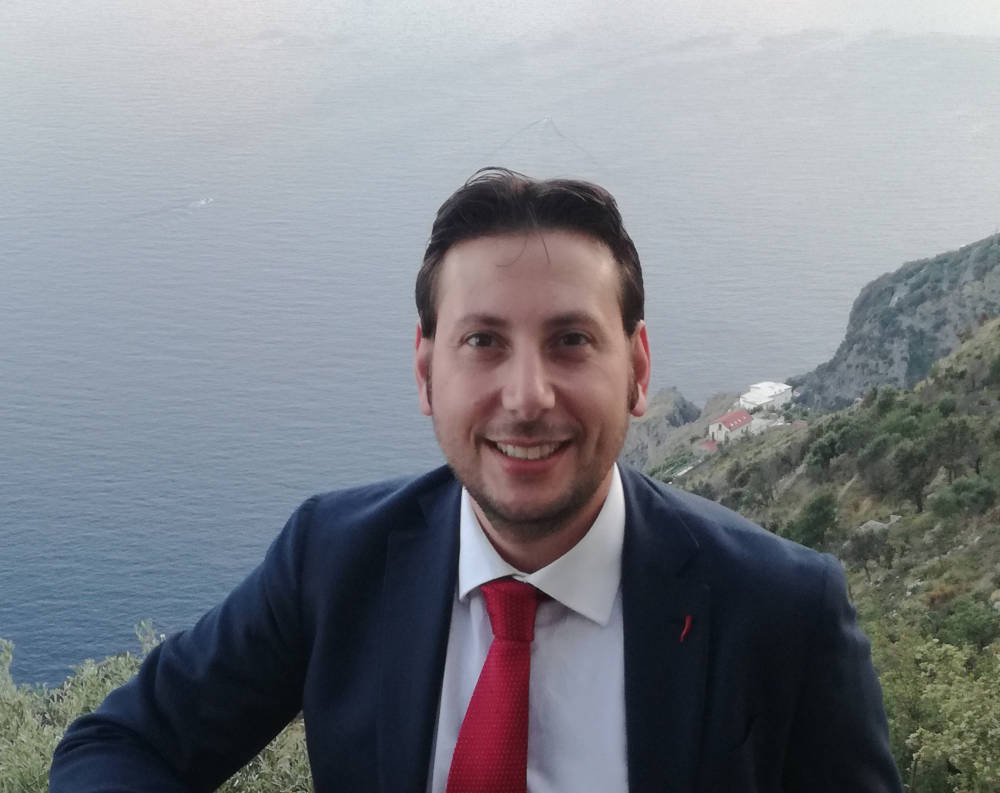KEYNOTE
New trends for synthetic aperture radar marine applications
Andrea Buono
Parthenope University of Naples, Italy
ABSTRACT
We are living in the decade of ocean science for sustainable development as promoted by the United Nations according to the “Agenda 2030”. If, from one side, this recognizes the global awareness on the relevance of the ocean for the health of human beings and the Earth, on the other side it suggests to the scientific community pushing significant efforts to preserve and protect ocean’s health from anthropogenic threats which are inducing irreversible changes.
Under this perspective, microwave remote sensing sensors represent non-cooperative and cost-effective data sources to get continuous information on the marine environment on various temporal and spatial scales and, therefore, to improve our understanding of ocean processes and dynamics. Nowadays, there is a general consensus that to fully explore the potential of microwave remote sensing measurements, advanced theoretical models and algorithms to retrieve the geophysical parameters of interest are needed.
The keynote focus on the potential of synthetic aperture radar (SAR) satellite remote sensing to support ocean monitoring and maritime surveillance. The most recent trends about SAR imaging are presented including the use of SAR sensors onboard of small and “virtual” constellations of satellites and the implementation of polarimetric architectures. They respectively reply to the demand, from users, of extremely dense revisit time satellite imagery in response to natural hazards and the capability of the scientific community to develop advanced added-value products and to enable new applications. However, to get full benefits from such SAR measurements, tailored physical models are needed. All this matter is provided with reference to selected case studies that include marine oil pollution monitoring, the observation of critical infrastructures and the vulnerability mapping of coastal areas.
SPEAKER BIOGRAPHY
Andrea Buono (SM’22) was born in Naples, Italy, in 1984. In 2010 and 2013 he obtained the BSc and MSc degrees, respectively, in Telecommunications Engineering at the “Parthenope” University of Naples, Italy. In 2017 he obtained the European PhD degree in Information Engineering at the “Parthenope” University of Naples, discussing a thesis on “Polarimetric models for PolSAR observation of oceans and coastal areas”. Since 2018 he is Assistant Professor in the field of applied electromagnetics at the Engineering Department of the “Parthenope” University of Naples. In 2021 he received the Italian National Scientific Qualification for Associate Professorship. He was involved in several international research projects on microwave remote sensing of the oceans as Principal or Co-Principal Investigator (PI/Co-PI), including the “Dragon” cooperation framework (2017-ongoing) between the European Space Agency and the National Remote Sensing Center of China, the Italian Space Agency project “CSG to monitor sea oil pollution” (2022-ongoing) and the Japanese Aerospace Exploration Agency project “Techniques for ocean wind field estimation” (2022-ongoing).
His research activities deal with the development of microwave electromagnetic models mainly focused on the characterization of complex surfaces and scenarios and on the interpretation and exploitation of polarimetric information. These theoretical studies found their applications in environmental remote sensing mainly regarding the observation of the ocean and coastal areas using multi-polarization and multi-frequency synthetic aperture radar. He developed novel algorithms at the basis of added-value products for coastal vulnerability and risk mapping, observation of critical infrastructures and natural ocean targets, wind field estimation and marine oil pollution monitoring. His research activity is witnessed by more than 100 works he published on peer-reviewed international journals, refereed international conference proceedings and textbooks.
He was visiting scientist and lecturer at the Shanghai Ocean University (2015), University of Barcelona (2015, 2016), Beihang University (2016, 2020, 2021), Institute of Advanced Studies (2017), Polytechnic University of Bucharest (2019), Beijing University of Technology (2020), University of Cagliari (2022).
He is Associate Editor for the IEEE Geoscience and Remote Sensing Letters (since 2022) and Guest Editor for the MDPI Remote Sensing Journal (since 2020). He was session chairman at the IEEE IGARSS conference (2018, 2021, 2022), the IEEE International Workshop on Metrology for the Sea (2022), the European Space Agency PolInSAR Workshop (2021) and the Remote Sensing Italian Association International conference (2021). He served as member of the Technical Programme Committee for the following IEEE conferences: IGARSS (since 2018), International Forum on Research and Technologies for Society and Industry (since 2018), Young Professionals Conference on Remote Sensing (2018), Mediterranean and Middle-East Geoscience and Remote Sensing Symposium (since 2020), International Workshop on Metrology for the Sea (since 2022).
He was the recipient of the Best Poster Award at the “Dragon” conferences provided by the European Space Agency (2015, 2021), the Best Reviewer Award of the Remote Sensing journal provided by the MDPI Editorial Board (2017, 2018), the Special Mention for the Galileo Galilei Prize for young researchers provided by the Rotary District 2100 (2018), the Best PhD student research activity Award provided by the Italian Society of Electromagnetism (2015) and the Best Remote Sensing Thesis Award provided by the IEEE Geoscience and Remote Sensing Society South Italy Chapter (2014).

























